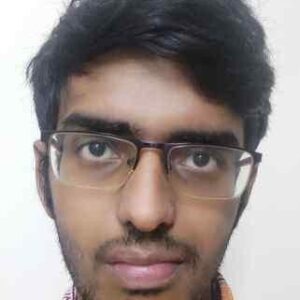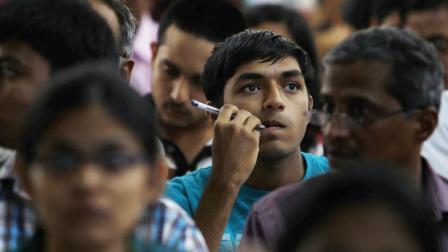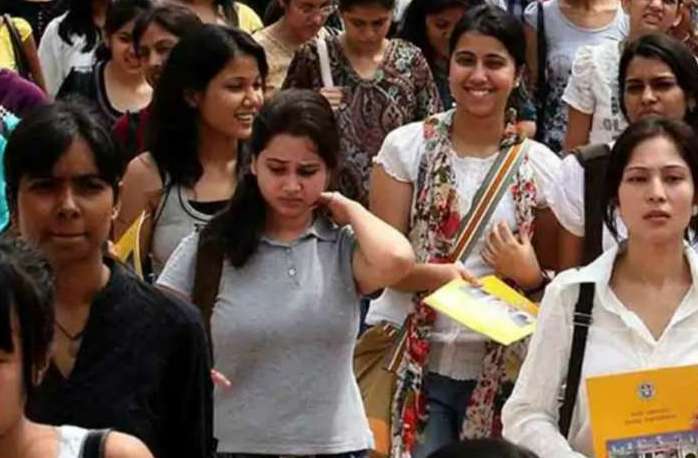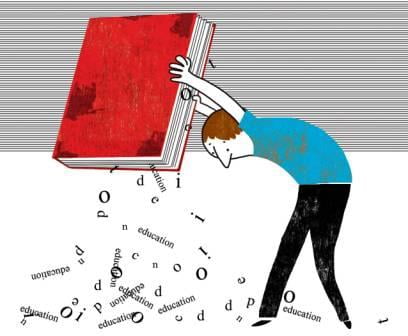

Engineering as a career is accorded high regard all across India, seen by its sizable and growing middle class as an escalator to economic prosperity. India’s premier engineering institutes – The Indian Institutes of Technology (IITs) and the National Institutes of Technology along with a dozen or so elite private institutes, are highly glorified and romanticized. The dream of becoming an engineer is passed on generationally and is spontaneously assumed to be the default career ambition for most middle-class students.
 Engineering Entrance-Exam Preparation forms the bulk of India’s private coaching industry. Engineering test-coaching is estimated to be tens of thousands of crores in worth. In spite of categorical reservation quotas for students from socio-culturally underprivileged communities being in place for decades, the engineering community is dominated by savarna (so-called upper caste) males. Leading positions in the industry and academia continue to be disproportionately occupied by upper-caste males. These power structures have reportedly manifested even in the Silicon Valley.
Engineering Entrance-Exam Preparation forms the bulk of India’s private coaching industry. Engineering test-coaching is estimated to be tens of thousands of crores in worth. In spite of categorical reservation quotas for students from socio-culturally underprivileged communities being in place for decades, the engineering community is dominated by savarna (so-called upper caste) males. Leading positions in the industry and academia continue to be disproportionately occupied by upper-caste males. These power structures have reportedly manifested even in the Silicon Valley.
Most of the Indian society has deeply-entrenched systematic discrimination, bias, and exploitation on lines of caste and gender. Despite the provision of affirmative action in the form of categorical reservation of seats in engineering admissions, the various faultlines of socioeconomic inequality are still prominent. Students from underprivileged backgrounds suffer from lack of awareness, mentorship, conditioning, connections and support network, and access to premium coaching.
 Further, once they join colleges for pursuing their engineering degrees, they face tacit, and in some cases, even explicit discrimination, neglect and ostracization by their peers.
Further, once they join colleges for pursuing their engineering degrees, they face tacit, and in some cases, even explicit discrimination, neglect and ostracization by their peers.
At many elite engineering colleges, the toxic, stiff competition continues and with their limited resources and experience, underprivileged students face a vicious cycle of low baselines, slow progress, and high expectations.
They suffer from deep-seated intensifying insecurities and develop anxieties regarding their status, identity, performance, deservingness, financial assurance, band confidence in their ability and potential.
This leads many to harbour low self-esteem, inferiority complex, impostor syndrome, and similar psychological setbacks. The vicious cycle intensifies as the factors feedback into one another, affecting their learning and mental health. The dearth of faculty members from their communities only adds to this.
Finally, when the students graduate and sit for campus placements to join various recruiters arriving on campus, the lack of any private-sector affirmative action measures largely negates most of the disparity moderation yielded by categorical admission compensation. Moreover, socioeconomic mobility for such students continues to be retarded by workplace discrimination, particularly in upskilling, community-building, referrals, recommendations, and promotion.
 Almost a million students appear at the JEE Mains exam, the prime engineering entrance exam in India, competing for some 50,000 seats in the government-funded IITs, NITs, and IIITs.
Almost a million students appear at the JEE Mains exam, the prime engineering entrance exam in India, competing for some 50,000 seats in the government-funded IITs, NITs, and IIITs.
Those targeting IITs need to qualify yet another entrance exam, the JEE Advanced. Students toil to prepare for the exam, considered to be one of the most difficult undergraduate admission tests in the world.
With an expansive syllabus and challenging question problems involving complex reasoning and careful computation, the exam requires conceptual rigour, significant theoretical memorization, and calculation practice.
Most students start their preparation right at the beginning of their high-school and many drop a year in pursuit of the same, studying a few to several hours a day. The stress associated with the exam is such that numerous unfortunate incidents of self-harm and suicides are reported each year. Even many of those who qualify the exam go on to express regret at missing out on their teenage days and enduring such mental and emotional strain in their formative years.
 Indiscriminate imposition of engineering as a career pursuit and the relentless boom of coaching have been widely criticized by leading sociologists, psychologists, educators, scientists, business leaders, and other eminent personalities. However, the obsession for the exam persists, as India’s middle class continues to widen.
Indiscriminate imposition of engineering as a career pursuit and the relentless boom of coaching have been widely criticized by leading sociologists, psychologists, educators, scientists, business leaders, and other eminent personalities. However, the obsession for the exam persists, as India’s middle class continues to widen.
Engineering Entrance preparation is extremely arduous and given the overwhelming all-round pressure of expectations of parents, relatives, teachers, coaches, friends, and the society at large, students attach performance in the exam to judging their holistic worth and that of others, to an extent where one’s rank in the exam could for many years continue to be directly proportional to the regard the person commands from them.
Determination of one’s self-worth and exclusive derivation of sense of achievement from exam performance during formative years internalize a meritocratic connection in the plastic inexperienced minds of young aspirants, so much so, that they begin to hold their self-esteem and their degree of respect meted out to others as being contingent upon their respective success on conventional fronts such as career performance and later corporate performance, the only parameterizations of success known to them.
Further, given how cloistered and underexposed to others’ diverse lived-experiences and the harsh, ground realities of the world they are, most elite engineers live in a bubble of corporate comfort and narrow meritocratic worldview limited by convenient idealistic assumptions. They see a direct, simple correlation between success and merit, seeing progress and prosperity to be driven solely by innate talent and/or indiscriminately-rewarding hard-work.
The detachment from the larger social context that years of linear focus, armchair ardour, and narrow sense of progress affords, leads to an utter and persistent negligence of privilege and the very concept of privilege.
 Engineers are typically conditioned to think of the world as a fair competition, being largely unacquainted with harsh realities and having a sense of ‘Labour omnia vincit’ (Hard work triumphs over everything) ingrained in them. They find it difficult to visualize that different people have different starting lines in life and hence comparing their finishing times with respect to a fixed finish-line is grossly unfair.
Engineers are typically conditioned to think of the world as a fair competition, being largely unacquainted with harsh realities and having a sense of ‘Labour omnia vincit’ (Hard work triumphs over everything) ingrained in them. They find it difficult to visualize that different people have different starting lines in life and hence comparing their finishing times with respect to a fixed finish-line is grossly unfair.
It is for this very negligence of different sizes of our career pedestals that engineers tend to overlook the need for affirmative action and resist it vehemently. Many begin to see life the way they see the Joint Entrance Exam – a fair, universal opportunity that rewards merit and merit alone. This oversimplistic normative idealistic thinking and general belief in the absoluteness of merit and it being exclusively a product of innate talent and hard work, leads engineers to gloss over structural inequalities in the society.
Engineers tend to hold a steadfast and often incorrigible conviction in absolute equality of opportunity as the ideal means of ensuring justice and fairness, instead of equity-insurance measures. This causes them to instinctively overlook gaping gaps in individual backgrounds.
Limited socio-cultural exposure often confines them to unimodal thought and superficial unidimensional analysis, which keeps them from seeing the need for unequal (differential) measures in order to level existent inequalities. The lack of awareness turns into a vicious cycle and they begin to view and criticise any attempts at affirmative action as discrimination.
 As a result, among engineering students and engineers, we see a high prevalence of overt and tacit disapproval of affirmative action measures as well as diversity and inclusion policies of companies from recruitment and promotion to leave grants. Hushed spiteful conversations criticizing reservation and belittling, even demeaning speculations about category candidates who get selected for coveted positions are thus commonplace in university dormitories, by office water-coolers, and in online forums.
As a result, among engineering students and engineers, we see a high prevalence of overt and tacit disapproval of affirmative action measures as well as diversity and inclusion policies of companies from recruitment and promotion to leave grants. Hushed spiteful conversations criticizing reservation and belittling, even demeaning speculations about category candidates who get selected for coveted positions are thus commonplace in university dormitories, by office water-coolers, and in online forums.
Casual and cathartic sexist and misogynistic remarks against female peers, often baselessly alleging gender-favouritism in academics and placements, are reverberated in most engineering campuses. This often continues through careers – the merit and achievements of women are downplayed by vaguely attributing their success to ulterior factors, often in a slanderous and disparaging manner.
Such prejudices often manifest as cathartic posts and rant-reels on social media platforms, increasing the risk of echo-chamber effects for prospective, budding, and seasoned engineers alike who consume such content, ultimately impeding reform of the abject gender-disparities in STEM.
The discussion made above exposes the pitfalls of utilitarian education and the need for pervasive sensitization throughout the education system. In this context, the importance of the role of education in providing students with a broad unbiased worldview needs to be stressed. Technical and Professional education must remain grounded in its overall environmental context and mindful of social realities.
Mainstream education, particularly profession-specific professional training suffers from a detachment from its real-world backdrop, an epistemic attention blindness of sorts. Incorporating diverse grassroots exposure, hands-on human-contextual experiential learning, and systematic community-specific sensitization programs could pave the way forward towards creating a more inclusive, empathetic, and vibrant engineering community in the country. ![]()
___________
Also Read:
Centre’s Opaque Auction Rules For Pulses Rip Off Govt Coffers, Help Millers Strike Rich
Need to amend laws like UAPA to provide for punishment for those who slap false cases
Global Arms Trade: Who are the real winners?
Why not 40 pc tickets for women in Punjab and elsewhere?
Punjab – How a deadly cocktail of Agri-Water-Energy nexus going to destroy it?

Disclaimer : PunjabTodayTV.com and other platforms of the Punjab Today group strive to include views and opinions from across the entire spectrum, but by no means do we agree with everything we publish. Our efforts and editorial choices consistently underscore our authors’ right to the freedom of speech. However, it should be clear to all readers that individual authors are responsible for the information, ideas or opinions in their articles, and very often, these do not reflect the views of PunjabTodayTV.com or other platforms of the group. Punjab Today does not assume any responsibility or liability for the views of authors whose work appears here.
Punjab Today believes in serious, engaging, narrative journalism at a time when mainstream media houses seem to have given up on long-form writing and news television has blurred or altogether erased the lines between news and slapstick entertainment. We at Punjab Today believe that readers such as yourself appreciate cerebral journalism, and would like you to hold us against the best international industry standards. Brickbats are welcome even more than bouquets, though an occasional pat on the back is always encouraging. Good journalism can be a lifeline in these uncertain times worldwide. You can support us in myriad ways. To begin with, by spreading word about us and forwarding this reportage. Stay engaged.
— Team PT


Copyright © Punjab Today TV : All right Reserve 2016 - 2024 |